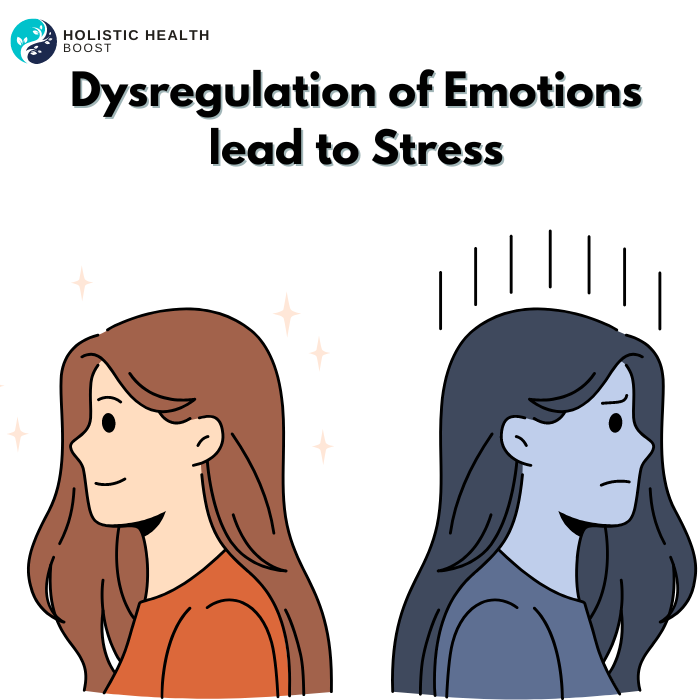What is stress?

Stress is a feeling that is caused by physical or emotional tension. It is a concept that has been found to have a significant impact on health and illness. In this article, we will discuss the different ways in which stress can negatively affect both the mind and the body as well as strategies that have been found to help cope with stress.
Different aspects of stress
There are external and internal aspects to stress and the causative stressors. The external aspect of stressors can include physical and physiological components such as heat, exertion or injury whereas the internal aspect can include more psychological components such as being diagnosed with the disease, being subject to treatment or stress triggered by financial struggles.

Stress can also lead to consequences such as smoking, use of substances, sleep deprivation, eating disorders and accidents. There can be good and bad stress where doing something courageous invokes good stress and the inability to handle an unfavourable situation invokes bad stress.
Stress can also be categorized into different intensities; acute and chronic stress. The intensity of stress can be examined by considering the duration of the event (stressor), the duration of risk perception and the duration of stress responses. They also documented that stress affects the whole body, both mentally and physically
Stress & physical health

Stress and physical health have a bidirectional relationship. Previous studies have shown that increased regular physical activity is linked to reduced stress levels.
In a research review, it was explained that the person experiencing stressful events tends to engage in less physical activity. These people often engage in more unhealthy methods such as smoking, excessive eating or drug use to escape the negative emotional tension caused by stress.
Stress can affect physical health in many physiological ways such as the decreased function of the immune system and cardiovascular stress. When faced with stressful circumstances, the body produces proinflammatory cytokines that mediate symptomatic responses such as fatigue and loss of appetite.
This leads to sickness behaviour which is essential in fighting the negative effects of stress. These symptoms allow the individual under stress to preserve energy which can be used by the body to better focus on improving its immune response.
Direct physiological effects

Stress can also have direct physiological effects on the body. One significant effect is the increase in hypothalamic pituitary adrenal (HPA) activity. This leads to changes in metabolism, increased heart rate and blood pressure and spikes in cortisol levels in the body. Stress can also affect serum leptin levels, which in turn has been found to affect academic performance.
A study was conducted with 25 children aged 8-10 to examine the role of stress on health and mood. They found that the number of stress factors reported positively correlated with the participant’s physical health symptoms. Another study conducted with children aged 5-12 demonstrated that higher levels of stress lead to reduced physical activity and increased consumption of sweet food and forms of emotional eating.

This actively demonstrates that stress can have indirect effects in terms of poor health behaviour. These effects occur in children and working adults who struggle with workplace stress and deal with health conditions such as obesity and cardiovascular issues. Work-related stress has been identified as a possible predictor of coronary heart disease and hypertension.
Though it is still widely unethical to conduct human studies to explore the relationships between psychological stress and disease, researchers have managed to identify certain possible mechanics within these two factors by studying animal models.
Stress & mental health

Mental health is another important sector affected by stress. Stress can give rise to problems such as anxiety and depression. The physical effects of stress can ultimately be the cause of weak mental health.
Biological remains of stress, such as proinflammatory cytokines, can have prolonged negative effects on the mental health of vulnerable individuals. A survey done by the American College Health Association showed that 84% of college students experienced mental exhaustion. As seen in these studies, stress can leave significant effects on one’s mental health, physiology, cognition and health behaviours.
Work stress
Studies have also shown that high levels of work stress can lead to depression among working adults. Organizational stressors such as work demands and heavy workloads, along with poor working conditions can lead to work stress. This build-up of work stress can eventually have extreme health outcomes such as cardiovascular issues and even death.
Negative affect

Other than work and academic stress, dysregulation of one’s emotions can also lead to chronic stress and eventually poor mental health. Negative affective states have been observed to emerge during adolescence associated with the stressful events that occur during this developmental period.
Learning to adapt to and regulate emotions when faced with stress holds important significance during the developmental stages. They further explain this to be the cause of emotional vulnerability observed in most adolescents experiencing stressful events.
Managing stress

The relationship between stress and its impacts on illness, especially in terms of mental health, can be moderated with factors such as an individual’s stress management skills and self-efficacy. Having a clear self-concept and high self-esteem can differentially influence the negative effects of stress such as depression.
Apart from these skills and resources, engaging in physical activities and friendly socialization has also been found to reduce the negative effects of perceived stress and significantly lower several mental health issues.
Studies have been conducted to identify coping mechanisms to help individuals overcome stress and avoid its negative mental and physical health implications. You can also take up a natural nutrient course to boost your mental state and help with stress recovery.
Coping mechanisms
Coping is a conscious effort or response to a stressor and the emotions that follow the stressful event in order to overcome it. There are two methods by which different people attempt to cope with stress.

Problem-focused coping involves trying to change the current circumstance to avoid the stress. Emotion-focused coping deals with attempting to change one’s own emotions by accepting the feelings evoked or by distracting oneself with other events. The degree of coping can hence influence the degree of stress experienced and the impact on illness.
In conclusion, stressful events can ultimately lead to negative physical and mental health effects. Certain effects such as the symptoms of sickness behaviour can be perceived as negative. However, these responses are essential for the recovery and establishment of normal bodily processes after a stressful encounter. An individual with acquired coping strategies, experiences lesser negative impacts caused by stress than individuals who are unprepared.
Share these articles with others and help them understand this critically misunderstood issue. You may never know, whoever sent you this might have just saved your life.


